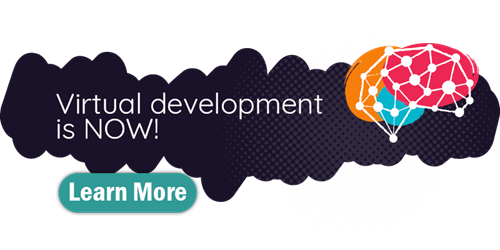Two years in and the Covid-19 pandemic continues to have a significant impact on our lives, not least in the way we now work. It is likely that the changes we have had to make to our working practices are here to stay. We hear a lot about the ‘New Normal’: how going forward we will work more flexibly and more virtually, splitting our working time between home and the office.
How will this new way of working impact leadership development?
We still need to focus our attention on developing leaders and, given the considerable challenges leaders face in the early 2020's such as managing and developing a flexible workforce, perhaps now more than ever. Current and future leaders must be even more agile, quick to evolve, implement new strategies and tap into the digital world – alongside the business as usual of building and maintaining an effective team.

Our rapidly changing working practices are presenting new challenges when it comes to leadership. How do leaders influence others, tackle challenging situations and keep our people motivated when much of the time we rarely see each other face-to-face? What new and enhanced skills and behaviours are required to ensure leaders can do this?
‘Zoom’ and ‘Teams’ meetings as well as ‘chat’ have now become synonymous with normal business practice for so many with people now accelerating their competence and awareness of such technology. So how can leadership development tap further into this? eLearning has been successfully used for many years: although the learner is typically learning passively on their own, it has been very successful in disseminating, building and assessing knowledge - particularly useful for consistent and compliant content.
360 survey results seem to suggest that knowledge and understanding is not translated into applied skills. Being great at, working with different people in meetings to identify and solve collective problems and agree actions, noticing and surfacing skills gaps with direct reports and then discussing them in such a way that engages them are critical skills for most Leaders. Practicing and honing such skills has always been important and in truth, many Leaders are left to figure it out and learn as they go. After all – traditional skills development has generally been in a training room which has a cost, in terms of venue, accommodation and travel expenses, Powerful development but exposure is often constrained understandably by budget. If more than 60% of leaders derail – we obviously need to do something!
Stealthy paradigm shifts are already happening.
Is your organisation tapping into technology providing immersive leadership development?
Can learners practice skills based on experiences that reflect real situations and challenges they are likely to face as leaders, both in 1:1 settings and in groups? Can they receive timely, meaningful feedback from other business leaders and professionals and learn over time – rather than a concentrated session where retention often quickly fades on return to work?
Two things are certain: the New Normal is here to stay and, if anything, developing effective leadership is more important now than it has ever been. Given that, blending online skills development with real people face-to-face in the classroom to support leadership development, seems to be the way ahead.
In the New Normal, can you afford to let your focus on leadership development slip?
